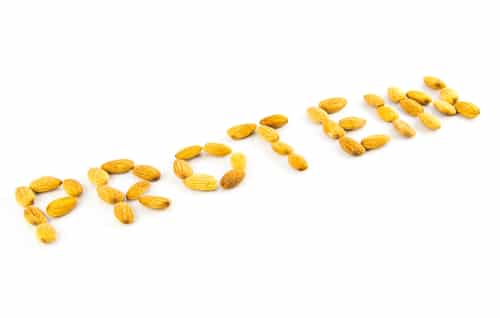 As you enter the menopausal years, you start to lose muscle, strength and bone mass at a greater rate. Even though you begin to lose muscle after the age of 20, this process accelerates after menopause and the decline is steeper in women than in men. Resistance training helps to reduce the loss of strength and muscle mass, but diet plays an important role in holding onto lean body mass as well. A number of women notice an increase in body fat during and after menopause, especially around the waist and tummy as visceral fat, the unhealthiest kind, increases and they start to see a “muffin top.”
As you enter the menopausal years, you start to lose muscle, strength and bone mass at a greater rate. Even though you begin to lose muscle after the age of 20, this process accelerates after menopause and the decline is steeper in women than in men. Resistance training helps to reduce the loss of strength and muscle mass, but diet plays an important role in holding onto lean body mass as well. A number of women notice an increase in body fat during and after menopause, especially around the waist and tummy as visceral fat, the unhealthiest kind, increases and they start to see a “muffin top.”
In an attempt to curb the increase in body fat, many women go on a weight loss diet. That can lead to an unhealthy consequence – further loss of muscle mass. A recent study looked at this issue. This study emphasizes the importance of consuming dietary protein throughout the day when you’re trying to lose weight.
Dietary Protein Helps to Preserve Lean Body Mass
Researchers at the University of Illinois divided 31 obese, post-menopausal women into two groups. Both groups ate a 1400 calorie diet daily for 6 months. The only difference was one group consumed a whey protein supplement three times a day – morning, afternoon and evening while the other group consumed a carbohydrate placebo. Both groups were encouraged to do light exercise like walking and stretching but did no resistance training.
At the beginning and end of the 6-month study, researchers used imaging studies to measure thigh muscle mass and body fat levels in these women and used a variety of tests to measure strength, physical function, and balance. The results? The women who consumed protein throughout the day lost 3.8% more subcutaneous fat and had a relative gain of 5.8% more thigh muscle compared to women who didn’t consume protein drinks throughout the day. The women did experience some loss of strength as they lost weight but eating a higher protein diet helped to preserve their performance on tasks that require strength and balance.
More Dietary Protein and More Frequent Protein
What can we conclude from this? Getting adequate protein intake and consuming dietary protein throughout the day helps to preserve muscle mass during weight loss and boosts fat loss at the same time, partially by reducing appetite and also by the subtle metabolism-boosting benefits of a protein. What’s interesting is these women didn’t do resistance training. Imagine how much better the results could have been had they added resistance exercises to the mix.
Unfortunately, some women make the mistake of cutting back on protein when they’re trying to lose weight. Better to cut back or eliminate processed carbs and keep the protein – or even increase the amount of protein in your diet and consume it more frequently. Researchers involved in this study believe that the women benefited from eating protein at regular intervals throughout the day. This ensured their muscles had an ample supply of amino acids available at all times.
The Challenges of Getting Enough Dietary Protein
Based on this study, it’s best to eat protein at regular intervals throughout the day. A whey protein supplement is a convenient way to get protein but it’s not the only one. If you prefer to get protein from food rather than a supplement, here are some quick and convenient ways to snack on protein throughout the day.
Keep a carton of low-fat cottage cheese in the refrigerator for a quick protein-rich snack. A half-cup has an impressive 15 grams of protein and is a decent source of calcium too. Some studies show that low-fat dairy products help to boost fat loss.
Carry packages of string cheese with you to work. A one-ounce serving made with 2% milk has 8 grams of muscle-building dietary protein.
Boil a carton of eggs and keep them in the refrigerator within easy reach to snack on. Pump up their flavor by dipping them in Tabasco sauce or salsa.
Make friends with a can of sardines. They may smell funny but they’re full of protein and an excellent source of omega-3 fats that are heart-healthy. One can has a whopping 18 grams of protein. Don’t like sardines? Make a tuna salad instead and enjoy it on whole grain crackers.
Don’t neglect plant-based proteins. Tofu, tempeh, lentils, and beans, including edamame, are all good sources of plant-based protein. Plus, there’s some evidence that soy-based foods can improve menopausal symptoms as well. If you get most of your protein from plant-based sources, make sure you’re eating a variety of protein-rich foods to get the full array of essential amino acids your body needs.
The Bottom Line?
Don’t skimp on dietary protein after menopause, especially if you’re trying to lose weight. It helps to prevent loss of lean body mass when you’re eating a lower calorie diet. Just as importantly, don’t neglect resistance training. Protein and resistance training is a sure-fire recipe for better body composition.
References:
J Gerontol A Biol Sci Med Sci. 2011 July

